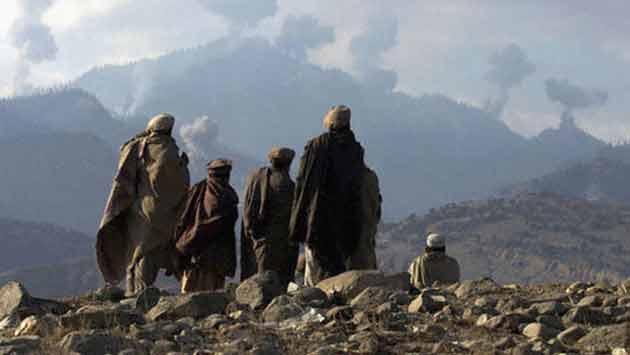Reply To:
Name - Reply Comment
 The movement for Balochistan's secession appears to be gaining traction amid ongoing exploitation and repression by Islamabad. Deepening mistrust between the Pakistani state and the Baloch people—fueled by discriminatory policies and heavy-handed governance—seems to be a primary factor behind the heightened discourse on secession.
The movement for Balochistan's secession appears to be gaining traction amid ongoing exploitation and repression by Islamabad. Deepening mistrust between the Pakistani state and the Baloch people—fueled by discriminatory policies and heavy-handed governance—seems to be a primary factor behind the heightened discourse on secession.
Recently, Pakistani Prime Minister Shehbaz Sharif labeled local protestors as "militants" and their agitation as a "wicked scheme," pledging to intensify military operations in the region. "Negotiations are only open to those who recognize Pakistan's constitution and flag. There is no place for terrorists. It is time to eradicate terrorism," he declared.
Sharif's stance has further inflamed tensions among Balochistan's residents, who have long sought basic civil rights, fair resource distribution, and justice against exploitation—particularly in relation to the China-Pakistan Economic Corridor (CPEC). Sharif's alignment with China, despite Baloch opposition to the CPEC's environmental and economic impacts, has only exacerbated local grievances.
The path to reconciliation seems increasingly blocked as Islamabad persists in viewing the Baloch people with suspicion and addressing their issues with an iron fist. Sammi Deen Baloch of the Baloch Liberation Army noted, “I think there will be a time when discussions of peace will cease because peaceful voices are being suppressed and linked to militant groups.”
The Gwadar Port, a cornerstone of the CPEC from China's perspective due to its strategic role in Middle Eastern trade, is seen by the Baloch as a tool of destruction. This has sparked protests, which have often turned violent following military interventions, impeding CPEC implementation.
Beijing has pressured Islamabad to quell dissent in Balochistan to safeguard its significant investments in the CPEC, leading to severe military repression, including enforced disappearances and extrajudicial killings. This repression has only reinforced the perception of systemic discrimination and hostility from Islamabad.
Past Pakistani governments have been accused of undemocratic practices, including violent military actions, the dismissal of elected provincial governments, and the arrest of political leaders. “It’s a series of aggressions that have driven the Baloch to resist,” said veteran Baloch tribal leader Mir Muhammad Ali Talpur.
In other parts of Pakistan, Baloch students face racial profiling and discrimination. “The Baloch, coming from a distinct ethnic background, are experiencing a troubling trend of racism and xenophobia within Pakistan,” noted a recent submission to the UN Human Rights Council. Economist Kaiser Bengali highlighted the continued colonial-like control over Balochistan, stating, “The province is systematically discriminated against, with its resources being exploited for the benefit of other regions.”
While Islamabad continues to brand protestors as militants, educated, urban middle-class Baloch youth are increasingly joining the movement. Islamabad-based security analyst Qamar Cheema remarked, "Baloch youth are deeply concerned about the collective humiliation of their people by the Pakistani state. They feel alienated and excluded from the national social fabric and decision-making processes."
Many Pakistanis share these concerns, with some suggesting that the government's neglect of Baloch issues signals a troubling trend toward national disintegration. Waseem Murad, a Pakistani national, commented, “Ignoring the rights of a specific group could lead to dangerous fragmentation, where citizens are not treated equally.”
There are growing fears that strong secessionist sentiments may have taken root among the Baloch people. Dr. Serajuddaula Syed, a Karachi resident, warned that the situation could mirror the early stages of Bangladesh’s disintegration. PhD scholar Noureen Akhtar, who has worked with the Pakistani Prime Minister’s Office, urged the government to address the deprivation and repression of the Baloch to avert further disintegration of Balochistan from the country.